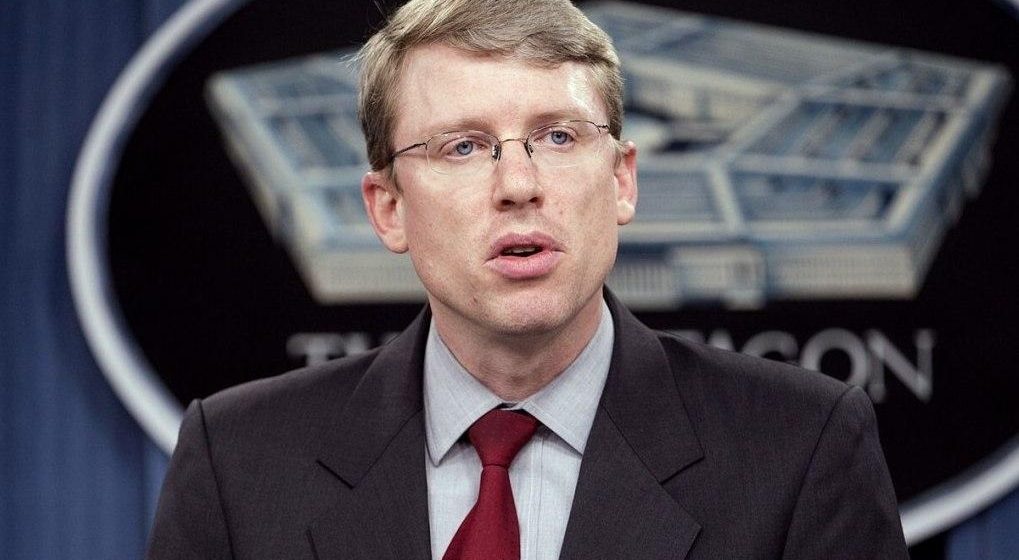Based on the current conditions in Afghanistan, the U.S. Department of Defence (DoD) expects fewer than 5,000 American troops to remain in the country by end of November, said David Helvey, Assistant Secretary of Defence for Indo-Pacific Security Affairs at the Pentagon.
Publish dateWednesday 23 September 2020 - 11:53
Story Code : 219420
“We’ve long maintained that our force presence in Afghanistan is conditions-based,” said Helvey during testimony before the House Oversight Subcommittee on National Security on Tuesday.
“This August, the president [decided] that the conditions of Afghanistan were sufficient to reduce our force presence to between 4,000 and 5,000 by the end of November 2020.”
Earlier this month, the U.S. Central Command (CENTCOM) Marine Gen. Kenneth McKenzie said they were on track to reduce troops in Afghanistan from 8,600 to around 4,500 by early November.
In late February, the U.S. and the Taliban signed an agreement that includes a drawdown and complete withdrawal of foreign forces from Afghanistan if the Taliban agree to break ties with Al Qaeda and ensure that no group uses Afghan soil to threaten the security of the U.S. or its allies.
Helvey explained that at that force level, the U.S. will maintain an ability to conduct its core task in Afghanistan and participate in the NATO-led Resolute Support mission, which works with the Afghan National Defence and Security Forces (ANDSF).
However, the conditions have to be met for those plants to be implemented.
“As [Secretary of State Mike Pompeo] said in Doha, the Taliban must uphold their counterterrorism guarantees to the United States,” Helvey said. “We also expect the Taliban to meaningfully participate in Afghan peace negotiations, and to do their part in preventing outside actors from negatively impacting the peace process.”
He told Democratic lawmakers, “Taliban violence, quite frankly, has been unacceptably high for too long.”
He also testified that terrorist groups such as the Islamic State (IS) and Al Qaeda are a threat to U.S. national security interests and that “a strong and capable ANDSF focused on combating terrorist threats and defending the Afghan people is going to be our best chance at supporting and defending U.S. interests.”
“Ultimately, what we want to be able to see in Afghanistan, is an enduring peace,” Helvey said. “In that type of environment … the terrorist organizations, terrorist groups, will not be able to operate, will not be able to plan, will not be present. That’s the focus, and we’re looking to get the Taliban to adhere to its commitments.”
“This August, the president [decided] that the conditions of Afghanistan were sufficient to reduce our force presence to between 4,000 and 5,000 by the end of November 2020.”
Earlier this month, the U.S. Central Command (CENTCOM) Marine Gen. Kenneth McKenzie said they were on track to reduce troops in Afghanistan from 8,600 to around 4,500 by early November.
In late February, the U.S. and the Taliban signed an agreement that includes a drawdown and complete withdrawal of foreign forces from Afghanistan if the Taliban agree to break ties with Al Qaeda and ensure that no group uses Afghan soil to threaten the security of the U.S. or its allies.
Helvey explained that at that force level, the U.S. will maintain an ability to conduct its core task in Afghanistan and participate in the NATO-led Resolute Support mission, which works with the Afghan National Defence and Security Forces (ANDSF).
However, the conditions have to be met for those plants to be implemented.
“As [Secretary of State Mike Pompeo] said in Doha, the Taliban must uphold their counterterrorism guarantees to the United States,” Helvey said. “We also expect the Taliban to meaningfully participate in Afghan peace negotiations, and to do their part in preventing outside actors from negatively impacting the peace process.”
He told Democratic lawmakers, “Taliban violence, quite frankly, has been unacceptably high for too long.”
He also testified that terrorist groups such as the Islamic State (IS) and Al Qaeda are a threat to U.S. national security interests and that “a strong and capable ANDSF focused on combating terrorist threats and defending the Afghan people is going to be our best chance at supporting and defending U.S. interests.”
“Ultimately, what we want to be able to see in Afghanistan, is an enduring peace,” Helvey said. “In that type of environment … the terrorist organizations, terrorist groups, will not be able to operate, will not be able to plan, will not be present. That’s the focus, and we’re looking to get the Taliban to adhere to its commitments.”
Source : Afghan Voice Agency(AVA)
avapress.net/vdchiwniv23nzkd.01t2.html
Tags
Top hits







